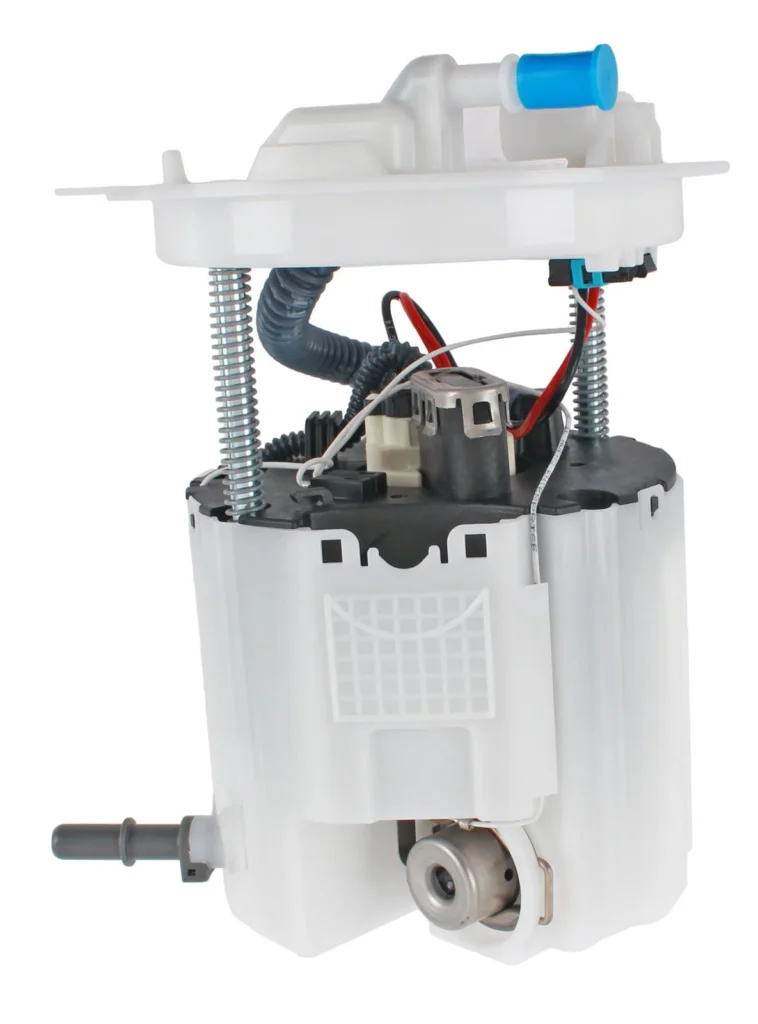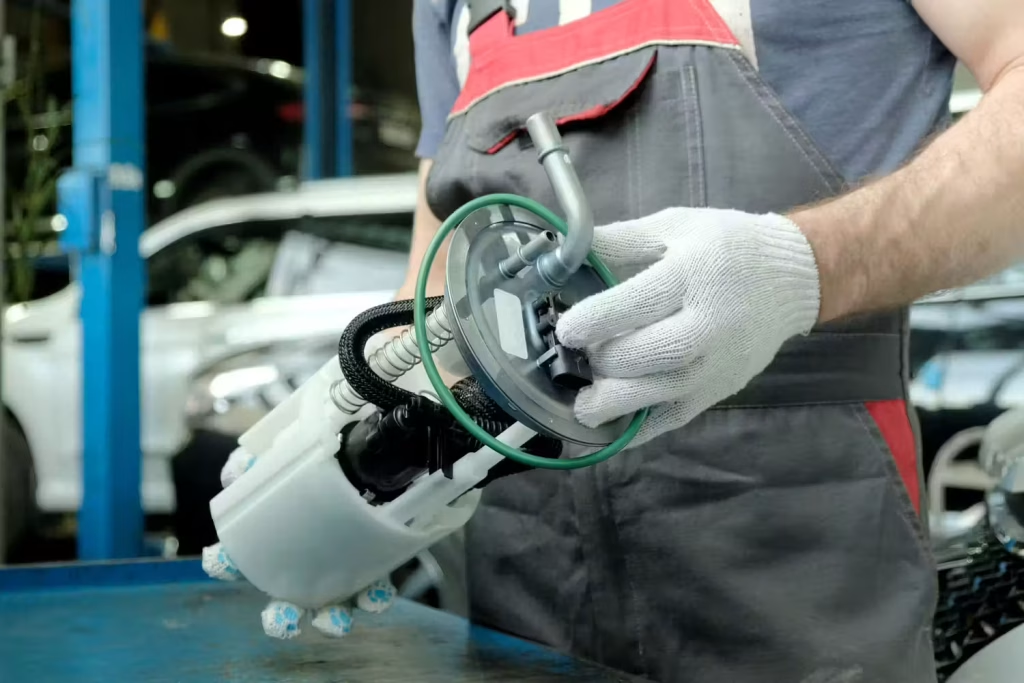Modern cars are unable to function in the way they are supposed to without a fuel pump. It is guaranteed to provide the best performance, fuel efficiency, and lower emissions by giving the exact energy load to the motor. However, fuel injectors may become problematic over time, just like every other component of the car. If they do, issues such as poor performance, rough idle, and trouble starting may appear. Common issues with fuel pumps are identified, as well as the most effective ways to fix them problems and prevent them from happening are reviewed in depth below.
Common Fuel Pump Problems
Clogged Fuel Injectors
Debris from carbon deposits or fuel-related contaminants can cause injectors to block. The blockages prevent the injector from producing the proper amount of fuel, resulting in low fuel efficiency, sluggish idle, and acceleration lag. Cars that are mostly running on fuel that is not of high quality or that do not pay attention to regular maintenance usually suffer from this issue.
Leaking Fuel Injectors
When a fuel pump system leaks, the fuel spills out of the injector, even when it’s not supposed to, creating an increase in fuel consumption, strong gasoline smells and, occasionally, the risk of fire. Injectors that are damaged or have worn seals can cause leaks. In extreme situations, the leaky injector could result in hydro-locks, fuel filling up the cylinder, and preventing the engine from rotating.
Fuel Injector Misfires
The fuel injector fails to spray fuel uniformly. The nozzles of the injector that have been damaged or blocked could cause this inconsistent spray pattern. Some of the signs are engine trembling, sluggish acceleration, or shaking and shaking while driving.
Faulty Fuel Injector Electronics
Modern fuel injectors operate through electronic solenoids that receive data from the ECU. If the solenoid fails to function, the injector will not be able to close or open correctly; the result is that either too much, or little fuel can get to inside the combustion chamber. The problem with the electronics is that they not only result in poor performance of the vehicle as well, they can also result in an associated Check Engine Light.
Dirty Fuel System
A soiled fuel system can reduce the overall fuel injector’s efficiency. Additives and fuel contaminants accumulate over time, which blocks filters for fuel and the lines as well as the injectors. This causes a decrease in fuel flow which can affect performance and efficiency of the fuel. The maintenance of your diesel injector could improve the performance of your vehicle.
How to Diagnose Fuel Pump Problems
The proper diagnosis of fuel-pump issues is dependent on understanding the signs and symptoms that are associated with the issue. There is a possibility that you have problems with your fuel injector if your vehicle exhibits signs of rough idle, low performance, hesitancy, or difficulty getting started. There are a variety of diagnostic methods:
Use an OBD-II Scanner
A Onboard Diagnostics (OBD-II) connector used in a lot of current automobiles allows you to connect to a scanner that can search to find fault code. Common codes associated with problems with fuel pump are P0300 (Random/Multiple Cylinder Misfires detected) or P0171 (System Too Spare). It is possible to identify the specific injector or cylinder which is causing the issue by using the help of an OBD-II scanner.
Conduct a Fuel Pressure Test
If your injectors are providing the correct amount of fuel could be determined by an examination of the pressure in your fuel. Although excessive pressure in the fuel tank could suggest a malfunctioning regulator for the pressure of fuel or a low pressure in the fuel supply, a low level of fuel could be a sign of a blocked in the filter of your fuel or an injector.
Inspect the Injectors Visually
Sometimes, problems with the fuel injector can be identified by a visual inspection. Look for any leaks of fuel or on the fuel rails or in the vicinity of injectors. Also, look for signs of corrosion, specifically close to the connections and seals.
Use a Stethoscope or Listening Device
Mechanical engineers can listen to the click sound that injectors make with a stethoscope or a listening device. The opening and closing of an injector produces a constant click sound. If you don’t hear a click, your injector could be closed.
Fixing Common Fuel Pump Problems

Let’s discuss the steps to fix these issues once you have identified the exact signs and symptoms as well as methods for diagnosing them.
Clean the Fuel pump
You can try a cleaning of your fuel injectors If you think your fuel injectors have been blocked. Fill up your tank by letting the cleaning solution flow throughout the fuel system. It is possible to take out the injectors and get professional cleaning or cleaning using an ultrasonic cleaner to clear any obstructions.
Replace Worn or Damaged Fuel Pump
It’s recommended to replace any malfunctioning injectors when there is leakage. Replace any worn O-rings or seals while you are working through this. To ensure the best quality and fit, OEM (Original Equipment Manufacturer) components are used in all cases.
Repair or Replace Faulty Fuel Pump Electronics:
If the electronics in your injector are defective, you may need to replace the solenoid or repair the wiring. Sometimes these electronics become integrated, and therefore not repairable. This means that the entire injector assembly needs to be replaced.
Flush the Fuel System
A regular cleaning of your fuel system will help to remove any contaminants and avoid clogging. Make sure to hire a professional fuel system cleaning service or put an effective fuel system cleaner within your fuel tank once every couple of months.
Inspect and Replace the Fuel Filter
The fuel filter blocks the accumulation of dirt and debris into the injectors. Check the filter and change it. It can become choked with time, causing a decrease in the flow of fuel. To prevent waste from getting to injectors, change the fuel filter according to what the manufacturer’s instructions.
Conclusion
The performance and efficiency of your car depend heavily on the performance of your fuel injectors. Understanding the most common issues with fuel injectors and being able to recognize and address them will assist you in making sure your vehicle continues to run without any issues. The best way to prevent problems with the fuel pump relies to maintain your vehicle regularly and using high-quality fuel. If you suspect that your fuel injectors have failed, do not wait to address it immediately delay as it can lead to further major issues and costly repairs. Every car owner must invest in a properly maintained fuel pump system since it not just improve its performance but also improves the performance of your vehicle but also aids in reducing emissions and improving the efficiency of your fuel.


